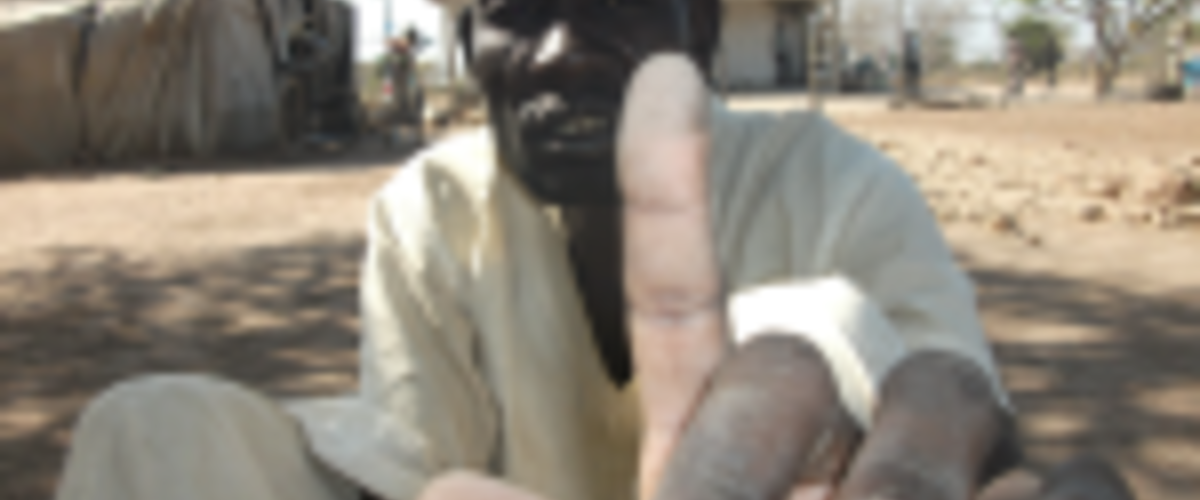A prisoner’s right to vote
He was in shackles, the huge chain cuffed onto his right wrist stretching down to his right ankle, where it was secured with a heavy padlock. He could not run if he tried, which was the whole point, of course.
Still, I suppose it counts for something that he was able to limp around the dusty jail grounds, just outside the main streets of Kwajok, the Warrap State capital. His chains jingled noisily as he chatted with other inmates, their cream uniforms a sign that they had already been convicted.
Some were washing plastic plates and metallic bowls, and a couple of others using long sticks to mix their evening meal in a large soot-covered pan at the fireplace.
In many senses, the picture met the standard minimum rules for the treatment of prisoners, but there was more.
When the man in shackles flashed his index finger, you saw it -- the indelible ink. Official proof that he had cast his vote, that he had exercised his right to participate in the collective decision of whether his country would remain united or split into two.
It was a hot Wednesday afternoon in Referendum Centre 0402077. The polling team had packed up for the day and left the site. Out of the 99 registered voters – 94 inmates and five officers – only twelve had not yet cast their votes.
"Some of the voters who registered when they were still held here are now released, but they have been coming back to vote," Prison Director Col. Angelo Jing Kuc said.
Of course, the prison wanted to ensure a maximum vote, the director added, but the inmates were free to decide if they would vote or not. "And you cannot be in the polling booth to force them to vote for secession. Ultimately, it's what they want, if they want. Some of them refused to vote."
One such inmate was 32-year-old Majuk Kuot Madut, remanded for murdering his brother in a fight about the inheritance of their deceased father's property. The prison organized transport to take him to his voting centre in Gogrial East, but he would not budge.
"I am mentally ill," he said. "The law does not allow me to vote. Even if it did, I don't really care whether Southern Sudan becomes independent or not. I am just waiting for my death."
Mr. Madut tightened his green wrapper around him with a don't-care attitude, and headed off to his abode behind the prison walls.
Mr. Akec did not vote either, but only because he was moving from place to place going through legal procedures as the registration process was taking place. His sadness was almost tangible. "I have to serve my sentence for one year, but I hope that when I am free, I will be going back to an independent Sudan."
Garang Garang Kwec, 35, was also convicted of murder -- a very common crime in Southern Sudan, according to UNMIS Correction Advisor Agness Chisale Munzele. It was self-defence in a village brawl, he said.
If he had not used the knife first, then the man he was fighting with would have killed him instead, said Mr. Kwec. And so he lived, but with two major regrets: That he killed his cousin and that he will be in jail for the first three years of his country's independence – that is what he voted for and his inked finger was his one consolation.
There was a faint trace of ink on Ayak Alup Apei's hands, a shy-looking mother of four who is not sure of her age, or when her youngest child was born ("around the time that Dr. Garang died") and who is not sure what secession or unity will ultimately mean, but followed the advice she heard from others and voted for separation. She bears no bitterness, she said, that would have stopped her from voting.
"It's not my country that committed the crime," says Ms. Apei, who has already served two of the three years she was sentenced to for the murder of a neighbor, who she beat to death when she accused Ms. Apei of theft.
"I don't see prison as a punishment," she said. "I see it as protection from the family of the woman I killed. She added that there were things she could not have given her children, even if she was free, but that she had been assured independence would grant them.
"Having a chance to take part in such a decision for my children is important to me," said Ms. Apei.
That, perhaps, is the crux of the matter. The debate about the right of prisoners to vote is age-old and rages on, even in well-developed democracies. Those who believe that prisoners have the right argue that being able to vote is effectively the right to have rights. Whichever way the referendum goes, therefore, Sudan has in its last election and now in self-determination, taken a big leap forwards.
 UN
UN United Nations Peacekeeping
United Nations Peacekeeping





